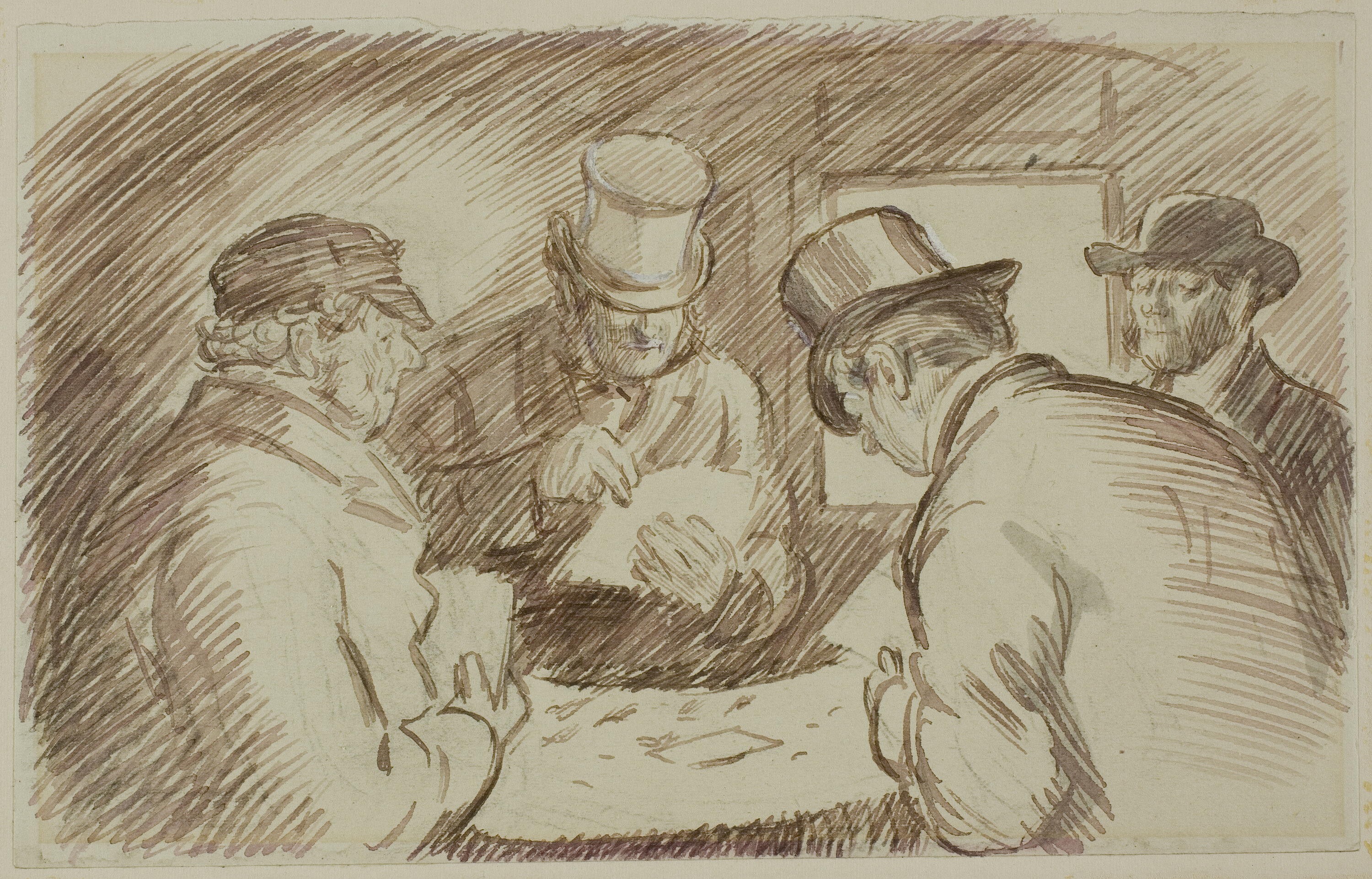TheGames

Charles Samuel Keene: A Game of Cards (1870/91)
"Success comes in many colors …"
©2022 by David A. Schmaltz - all rights reserved
What are the success games? There seem to be many. Some long, others shorter, some seemingly competitive, others more solitary. Must one master a wide array of games to become consistently successful, or does a niche strategy more likely succeed? Some seem to inhabit a dog-eat-dog world, while others seem to live in almost blissful ignorance of even a hint of competition. Some become team players while others definite solos. I think it unfortunate that in our culture, we imagine so many kinds of engagements to be at root competitions, which, by definition, spawn winners and losers. Many still subscribe to zero-sum perspectives whereby one's success, by definition, dictates another's failure. Some envision a roiling marketplace of Roman gladiator games where it's kill or be killed, without apologies, just the way the game's played, thank you.
Success might involve personal choice more than might seem obvious. Someone choosing competition doesn't so much have the game imposed upon them. They've chosen. Other options might well have created other conditions. An acquaintance from high school became a wolf of Wall Street. Had I taken that path, I would have doubtless become the prey, for I've never enjoyed playing those sorts of games. I fancy myself to be more gameless than thou, but I understand that even choosing not to play a game carries elements of game-playing within it. Needless to say (so why am I mentioning it?), success largely depends on how well-suited one seems to whatever game they find themselves engaging in. The literature's overflowing with glowing stories of failed store clerks who went on to success as something else. Failure's apparently situational. Success seems situational, too.
I just woke up one day to find I was inhabiting this life. I had not targeted my placement. I had inherited no role for which I was supposed to become the replacement. Clearly not a savant, I possessed no obvious (to me) gifts to leverage. I appeared to be of no more than average intelligence, perhaps just below average in the looks department, and I could work. I was skilled in the suffering department if that seemed important. I knew little.
Further, I didn't know how people came to know what they hadn't previously understood. School seemed to have a limited influence. Studying didn't seem to make all that much difference. Some information was absorbed, and others didn't. My father had not graduated from high school, but he passed the civil service exam to become a mail carrier, and a damned successful one. I doubted that I could ever pass such a rigorous exam.
Most start somewhat clueless as I was about how to play TheGames that are supposed to lead to success. The Muse is an absolute wizard at reading signals and anticipating plays. She's a natural-born competitor. It doesn't seem to matter which game's played; she’s shortly right in the middle or stealthily stalking the periphery looking for an entry. She's in charge of her destiny there. Me? I tend to lurk in the shadows, wondering what's happening on the playing field, unable to predict which play's coming. I find most games confusing, their strategy baffling, and watching them boring. It's probably the same for anyone watching me play my games. I, for instance, against all odds, have become a self-recognized grand master of writing truly terrible Christmas poems as well as equally truly terrible traveling tunes. I could found The Truly Terrible Publishing Company to distribute my mediocre works out into an already grossly over-stuffed marketplace featuring ever fewer interested consumers. I guess success comes in many colors and results from many different games.


